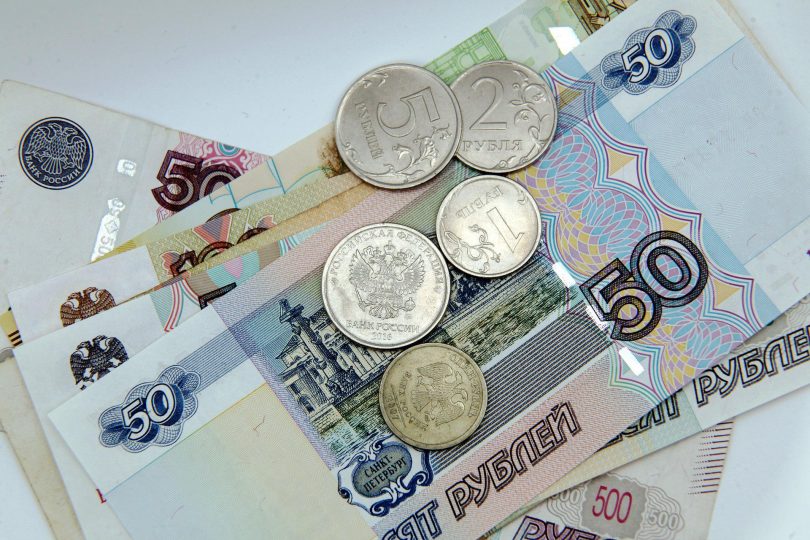[ad_1]
A mystery is swirling around the world’s third-largest economy: Why haven’t wages increased in Japan over the last two decades as they have elsewhere?
Since Prime Minister Fumio Kishida took office, he has made it clear that raising wages is one of the top priorities for his economic agenda and a crucial component of his “new capitalism.”
But there are no simple solutions.
Economists point to a series of major contributing factors, including decadeslong deflation, the country’s employment culture and a ballooning number of part-time and contract workers.
According to data by the OECD, the average annual wage in Japan increased until 1997 to $38,395, and then flattened out. Wages have maintained that same level ever since. In 2020, the latest data available, the average Japanese worker made $38,515 (equivalent to about ¥4.45 million based on the current exchange rate.)
During the same period, however, the average wage in many other countries rose — in some cases, dramatically.
For instance, the average South Korean salary was $21,830 a year in 1990, but went on to surpass Japan’s in 2015, eventually reaching $41,960 a year in 2020. In another example, wages in Japan and the United Kingdom were nearly identical in the late 1990s, but by 2020 they were much higher in the U.K. at $47,147 yearly.

What originally curbed wage growth in Japan was a recession triggered by the burst of the asset bubble in the early 1990s. Later that decade, the 1997 Asian financial crisis inflicted further damage.
There have been periods of growth in the years since, yet wages in Japan have barely budged.
“There are multiple causes behind Japan’s stagnant wage growth, but I believe it’s related to deflation,” said Hisashi Yamada, vice chairman of the Japan Research Institute, a Tokyo-based think tank.
Because of persistent deflation, Japanese companies are just as ingrained in the deflationary mindset as consumers.
Normally, when costs increase, they are reflected in the prices of products and services. This pushes a company’s revenue up, which eventually leads to higher pay for their workers.
But Japanese companies have been overly reluctant to pass on the costs to price-sensitive consumers since their wages have not been increasing. Yet with no increase in wages, Japanese customers remain frugal. Yamada calls this a “vicious spiral” that started after the financial crisis of 1997.

When Shinzo Abe began his second stint as prime minister in 2012, he was eager to fight deflation through aggressive monetary easing by the Bank of Japan. The plan has been unsuccessful so far.
On top of deflation, many economists claim that Japan’s sluggish wage growth is linked to a soaring number of part-time and contract workers over the last few decades.
Companies use such workers to save costs. Full-time employees are heavily protected by law, so employers hired more and more part-timers and contract employees as they are easier to lay off when times are tough.
In the early 1990s, part-time and contract workers comprised about 20% of the total employed workforce, a figure that shot up to 36.7% in 2021.
There is a huge wage gap between employees with full-time contracts and those without, so the increase of part-time and contract workers drags down the growth of Japan’s average salaries overall.
Because more women and seniors have been working part-time amid serious labor shortages in recent years, Yamada said Japan should invest more in such workers to improve their skills, so that they could pursue better careers with higher wages.

Another major factor is the employment culture in Japan.
Traditionally, lifetime employment and seniority systems were common in many companies, but the mindset of many workers has changed over the past few decades, with more people — especially younger people — switching jobs more often.
But overall, many workers still want job stability and tend to stay with the same company for a long time.
Under such circumstances, “labor unions and the management side both focus more on protecting employment itself rather than raising wages,” said Keiji Kanda, senior economist at the Daiwa Institute of Research.
To secure job stability, “their companies need to be run in a sustainable way, so companies and workers both accept relatively weak wage hikes,” Kanda said.
Companies are also often reluctant to boost wages because once they are raised, they are difficult to lower again out of fear that worker motivation would drop significantly.
As for the bargaining power of Japan’s labor unions, Yamada of the Japan Research Institute said they have never been very aggressive about wage hikes.
During the 1970s and 1980s, labor unions were more demanding, he said. But that was because the Japanese economy was growing at such a quick and steady pace.

Therefore, the annual shuntō wage negotiations between labor unions and management every spring have not really worked as a powerful tool for wage hikes, according to Yamada.
“I think it’s time to rebuild the shuntō system as an effective method to raise wages,” he said.
Japanese labor unions need to strengthen industry-wide cooperation like in Europe in order to gain more bargaining power, rather than one union negotiating with one company, said Yamada.
Union members can also work together to make industrywide efforts to develop skills for workers and to keep up with business trends, such as digitalization.
Stimulating fluidity in the labor market is another approach to drive up wages.
Given that many Japanese workers don’t really change jobs and it is difficult for employers to fire workers, Kanda said the government and companies should encourage workers to have side jobs if possible.
“This will give them trial opportunities (while keeping their main job). If it turns out that companies they work for as a side job are more suitable, they can then make a shift,” Kanda said.
“Since telework has become more common recently, they can work for companies” outside their commuting areas as well, he added.
But now, after years of deflation, the global inflation wave that is also causing prices to rise in Japan may finally prompt Japanese companies to raise wages.
Rising commodity prices and energy costs are forcing Japanese companies to raise the prices of their products and services. Japan’s wholesale price rose 8.5% year-on-year in December to hit the second-highest gain on record.
Looked at another way, the present inflationary trend could be an opportunity for Japanese companies to shed the deflationary mindset. According to Yamada, if price hikes continue to spread to more goods and services, it will be essential for companies to raise wages.
Otherwise, he said, “households will not be able to withstand the impact.”
In a time of both misinformation and too much information, quality journalism is more crucial than ever.
By subscribing, you can help us get the story right.
SUBSCRIBE NOW
[ad_2]
Source link





















